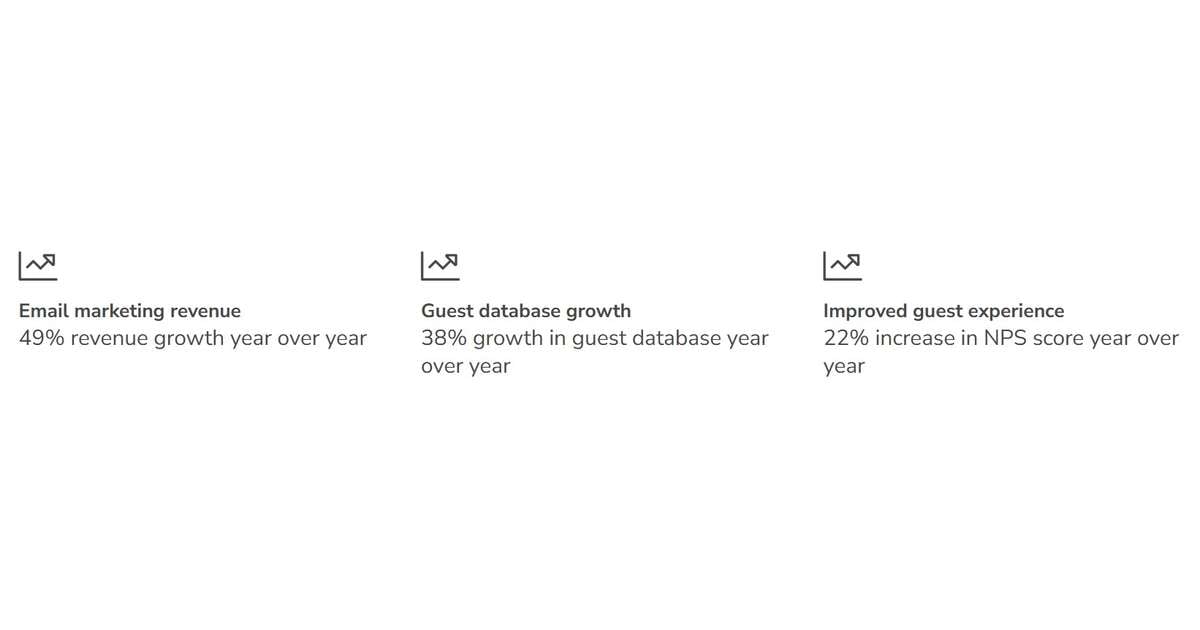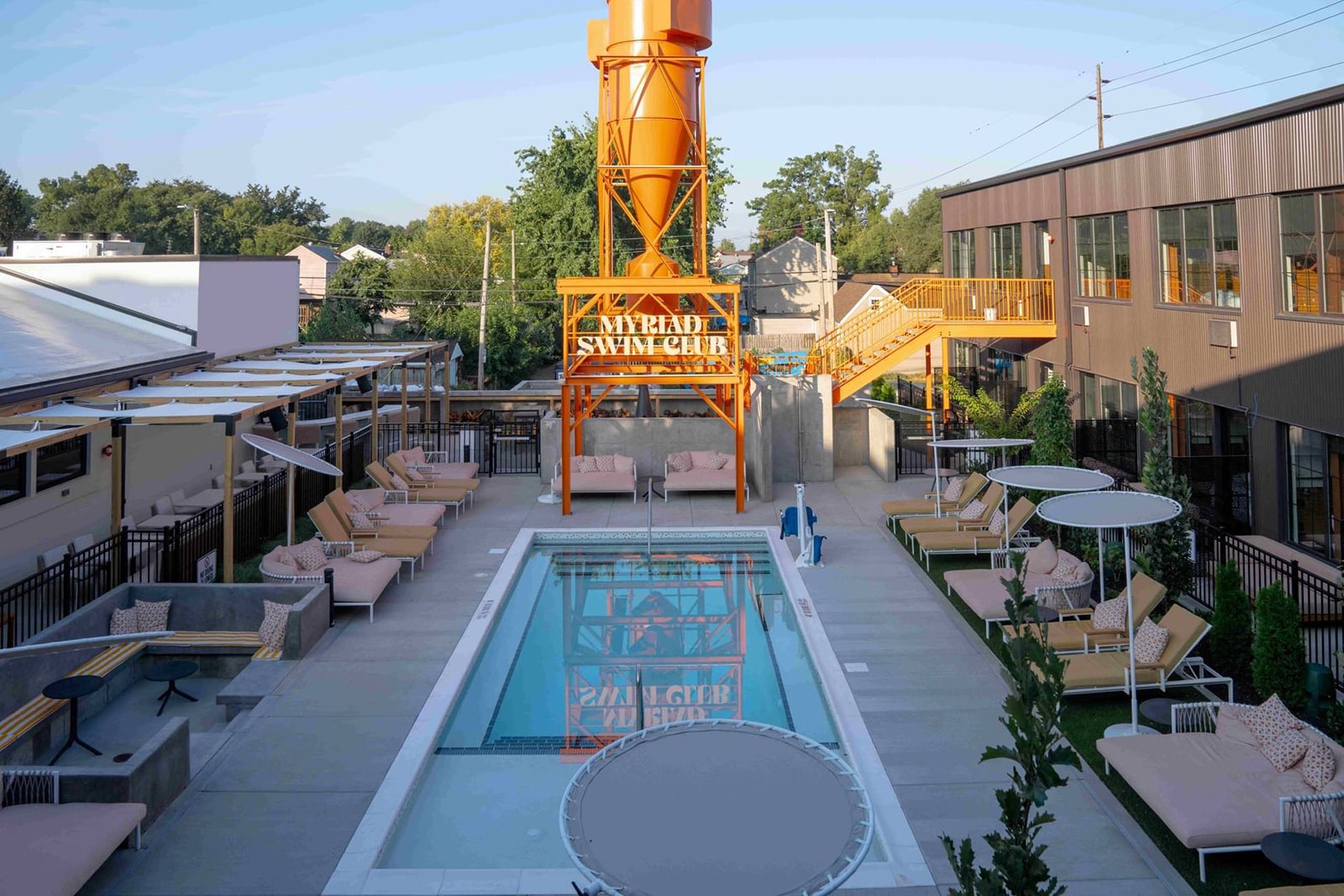
Hotel sales teams love to lead with their sparkling chandeliers, high-thread-count linens, and panoramic rooftop views.
But let’s be real—meeting planners aren’t booking your ballroom because of the décor.
They’re booking because of trust, relationships, and confidence in your team.
Cory Falter recently had a conversation with Mandi Graziano, a seasoned meeting planner and sales coach, on the InnSync Show to talk about this very topic.
The thing is, most hotel sales teams are still selling like it’s 1999—leading with specs, square footage, and generic room setups instead of the one thing planners actually care about: the team that’s going to make their event a success.
If your venue is struggling to stand out in the crowded meetings market, Cory and Mandi’s conversation is a reminder … it’s time to rethink your approach.
Hotel Sales Strategies: Why Hotels Focus on the Wrong Selling Points
Hop onto any hotel’s website and head over to the meetings and events page. What do you see? Probably a standard lineup of stacked chairs, empty ballrooms, and a capacity chart.
What’s missing? The people who actually make events happen. Showcasing your team can significantly boost hotel sales by enhancing room occupancy and maximizing revenue.
Planners want to know:
- Who’s running the show?
- Who’s making sure their VIPs are taken care of?
- Who’s going to pick up the phone when they need a last-minute change?
But instead of getting answers to these critical questions, planners get… a PDF of floor plans.
Cory says, If this is a business of people and relationships, and most everybody I talk to in hospitality says it’s all about relationships, how come there’s so little mention of the team?
That’s not how you build confidence.
When planners land on your website, they don’t just want to see numbers and specs—they want to know who they’ll be working with and whether they can trust your team to pull off a seamless event. An effective direct hotel sales strategy can increase direct bookings and eliminate commission fees, making it more profitable for hotel operators.
Sales Robots Are Ruining the Experience
If you want to turn a meeting planner off immediately, send them a soulless, robotic sales email.
Mandi says, Emails, subject lines—lame subject lines, following up, checking in, circling back… or when they send an email drilling you with 18 questions… It does make an impression where I’m like, ‘Oh. That hotel has sales robots.’ Nobody wants to work with a sales robot.
Cory adds, So many of the emails I see are just robotic AI-generated spam. The approach hasn’t changed, even though the way people buy has.
And they’re right. So many hotels rely on cookie-cutter sales tactics that feel impersonal and transactional.
And guess what happens? Planners ignore them.
Here’s the truth: your venue isn’t closing deals—your people are.
If you’re hiding them behind generic sales copy and outdated outreach strategies, you’re making it harder for planners to say yes.
Put Your People Front and Center
Meeting planners don’t just need a venue; they need a team they can trust.
If you want to attract more group business, it’s time to shift your strategy.
1. Make Your Team Visible
Planners book with people they trust.
So why are most hotels making it so hard to find out who they’ll be working with?
- Feature your key team members on your website’s meetings page. A simple “Meet Our Team” section with headshots and bios can go a long way.
- Showcase your team in action. Post short videos of your event staff setting up a room, executing a flawless F&B service, or handling last-minute client requests.
- Highlight your customer service wins. Do you have a star CSM who saved a last-minute event disaster? Share that story.
The people make the place, Mandi says. Your people should be just as much a part of your hotel sales process as your property.
2. Stop Sending Robotic Sales Emails
Planners don’t want another “Just following up…” email clogging their inbox. They want to hear from someone who actually understands their event goals.
- Send a quick video message instead of another cold email. It’s more personal and more effective.
- Reference something specific about their event. Make it clear you’re paying attention.
- Share a valuable insight. Instead of asking for a meeting, offer a tip, like a new trend in attendee engagement or a fresh approach to hybrid events.
Implementing a group hotel sales strategy is crucial. Use innovative marketing techniques and compelling offers to attract corporate groups.
Cory challenged hotels on this point directly. If hotels actually started helping planners make better decisions instead of just pushing their specs, they’d win more business. The best salespeople educate.
And that’s the key—stop selling and start helping.
3. Use Social Selling to Build Trust Before the RFP
If your sales team isn’t active on LinkedIn, you’re missing out on one of the biggest opportunities to connect with planners before they even send an RFP.
- Post behind-the-scenes content. Show planners what a real event looks like at your hotel—not just a staged promo shot.
- Engage with planners’ posts. Comment, ask questions, and start conversations before you pitch.
- Share valuable insights. Educate planners on what makes an event successful at your venue. Not every post should be a sales pitch.
Planners are watching. They’re lurking. And when they’re ready to book, they’ll go with the hotel that’s already earned their trust.
The Bottom Line: Relationships Close Deals, Not Floor Plans
Hotels that rely on their space to sell are playing a losing game. It’s the team, the service, and the trust that truly win business. The evolution of hotel sales management in relation to significant developments in the hospitality industry has shown that focusing on these elements is crucial.
If your website, sales process, and outreach aren’t putting your people front and center, you’re leaving money on the table. Various strategies to enhance hotel revenue, such as partnerships, direct bookings, and targeted sales initiatives, are essential for profitability.
Meeting planners want to know:
- Not just how many people your ballroom can hold. But who’s going to make sure their event runs smoothly.
- Not just what your F&B minimums are. But who’s going to make sure their VIP speaker gets their custom green juice backstage.
- Not just how many breakout rooms you have. But who’s going to jump in and problem-solve when an A/V issue pops up.
If you’re still hiding your best people behind a “checking in” email and a PDF of capacity charts, it’s time to change that. Because when meeting planners start choosing venues, they don’t just pick a place—they pick the team that makes them feel confident, supported, and ready to pull off an unforgettable event.
So… are you making it easy for them to choose you? Or are you still hoping square footage alone will seal the deal?
Watch Cory and Mandi’s full interview here >>
About Lure Agency
Lure Agency is renowned for its passion for R&R – Relationships and Revenue. This Hospitality B2B marketing agency stands out for its unique “Science and Soul” approach, expertly fusing data-driven strategies with creative flair. Specializing in helping independent resorts, tech companies, and suppliers and vendors in the hospitality industry.
Lure Agency crafts success stories by balancing human connection with tailored strategies. Their work goes beyond mere business transactions; it’s a journey of collaboration and innovation.
Lure Agency is committed to concocting success stories and inviting interested parties to learn more at www.lureagency.com.
View source


